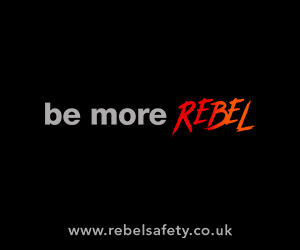Broadcast News
02/03/2005
BBC Governors face axe under Royal Charter proposals
Months of industry speculation and public consultation ended today as the Government published a Green Paper which renews the BBC's Royal Charter until 2016 and signalled the abolition of the 77-year institution of the Corporation's Board of Governors.
The Green Paper also confirmed that the licence fee arrangements will remain until 2016, although a review of alternative funding methods, including subscription, will be held before then.
Criticised heavily in the wake of the Hutton Report, the Governors are to be replaced by two new bodies, the 'BBC Trust' and an 'Executive Board'.
The Trust will have responsibility for the licence fee, oversee the Corporation in a "transparent and accountable" manner and ensure the BBC fulfils its public service obligations. The formally constituted Executive Board will be responsible for day-to-day management, programming and delivery of the corporation's services.
Culture Secretary Tessa Jowell said that the Green Paper would help ensure a "strong, independent BBC for the future", and would create a "responsive, more accountable BBC that would deliver quality services in the modern, multi-channel digital world".
Ms Jowell said: "The Governors' dual role as cheerleader and regulator does not sit easily in a public organisation of the size and complexity of the BBC. It lacks clarity. It lacks transparency. And it lacks accountability.
"The BBC Trust and Executive Board will provide much-needed daylight between two quite separate roles - running the BBC and making sure it is run well. Licence fee payers need to know who is speaking up for them. They need to know exactly who is in charge, and they deserve to know how important decisions are made."
BBC Chairman Michael Grade welcomed the retention of the licence fee, but said he thought it "regrettable" that the BBC's recently introduced governance reforms had "not had time to prove themselves". He recognised, however, that the corporation's internal changes had been "essentially more behavioural than structural" and that "the consensus in the public debate has been to buttress them with a new structure".
Mr Grade also said that he was happy that the governance issue "had now been settled ahead of the new Charter, providing the BBC with necessary certainty and stability".
It is understood that the Board of Governors have measured the proposals for a BBC Trust against the "five core principles" outlined in the Green Paper: independence; rigorous stewardship of public money; accountability to licence fee payers; clarity of roles; and practicality, and have concluded that the Trust "broadly meets those principles". The Board has expressed a commitment to an "effective and efficient" transition.
Endorsed by Mr Grade as his choice to chair the new Executive Board, Director-General Mark Thompson welcomed continued licence fee funding. He said: "The BBC faces exciting and daunting new challenges over the next decade…but the assurance that original, British content from the BBC will be a guaranteed fixture of any future landscape is good news for the industry and our audiences."
Echoing Mr Grade's backing of the new governance proposals, he added: "It is important that as the Executive Board of a public service broadcaster, funded by the licence fee, we should be properly supervised and held accountable for our decisions.
"My executive colleagues and I will fully play our part to implement the new arrangements and make them work in the interests of licence payers."
Beyond the replacement of the Governors, the Green Paper sets out a "special purpose" for the BBC in helping "build a digital Britain" and a role for Ofcom in external competition regulation of the BBC.
Recognising that commercial broadcasters had criticised the BBC's dominance of the broadcast industry, Ms Jowell said: "We want to keep the BBC strong, while ensuring that it does not become overmighty in its dealings with the wider market.
She said that the Corporation's interests needed to be "constrained" in the commercial sector and it must not be tempted to use "the unique clout the licence fee gives it to step on the toes of other broadcasters". Adding: "It should not play copycat. Or chase ratings for ratings sake. Or put legitimate businesses at peril."
The Green Paper highlighted the need for a significant degree of production outside London and the BBC's duty to "boost quality and generate business throughout the broadcasting industry".
It is suggested that this could be achieved through either a "window of creative competition" between BBC in-house production and external producers, or an increase in the current 25% independent production quota.
(GB)
The Green Paper also confirmed that the licence fee arrangements will remain until 2016, although a review of alternative funding methods, including subscription, will be held before then.
Criticised heavily in the wake of the Hutton Report, the Governors are to be replaced by two new bodies, the 'BBC Trust' and an 'Executive Board'.
The Trust will have responsibility for the licence fee, oversee the Corporation in a "transparent and accountable" manner and ensure the BBC fulfils its public service obligations. The formally constituted Executive Board will be responsible for day-to-day management, programming and delivery of the corporation's services.
Culture Secretary Tessa Jowell said that the Green Paper would help ensure a "strong, independent BBC for the future", and would create a "responsive, more accountable BBC that would deliver quality services in the modern, multi-channel digital world".
Ms Jowell said: "The Governors' dual role as cheerleader and regulator does not sit easily in a public organisation of the size and complexity of the BBC. It lacks clarity. It lacks transparency. And it lacks accountability.
"The BBC Trust and Executive Board will provide much-needed daylight between two quite separate roles - running the BBC and making sure it is run well. Licence fee payers need to know who is speaking up for them. They need to know exactly who is in charge, and they deserve to know how important decisions are made."
BBC Chairman Michael Grade welcomed the retention of the licence fee, but said he thought it "regrettable" that the BBC's recently introduced governance reforms had "not had time to prove themselves". He recognised, however, that the corporation's internal changes had been "essentially more behavioural than structural" and that "the consensus in the public debate has been to buttress them with a new structure".
Mr Grade also said that he was happy that the governance issue "had now been settled ahead of the new Charter, providing the BBC with necessary certainty and stability".
It is understood that the Board of Governors have measured the proposals for a BBC Trust against the "five core principles" outlined in the Green Paper: independence; rigorous stewardship of public money; accountability to licence fee payers; clarity of roles; and practicality, and have concluded that the Trust "broadly meets those principles". The Board has expressed a commitment to an "effective and efficient" transition.
Endorsed by Mr Grade as his choice to chair the new Executive Board, Director-General Mark Thompson welcomed continued licence fee funding. He said: "The BBC faces exciting and daunting new challenges over the next decade…but the assurance that original, British content from the BBC will be a guaranteed fixture of any future landscape is good news for the industry and our audiences."
Echoing Mr Grade's backing of the new governance proposals, he added: "It is important that as the Executive Board of a public service broadcaster, funded by the licence fee, we should be properly supervised and held accountable for our decisions.
"My executive colleagues and I will fully play our part to implement the new arrangements and make them work in the interests of licence payers."
Beyond the replacement of the Governors, the Green Paper sets out a "special purpose" for the BBC in helping "build a digital Britain" and a role for Ofcom in external competition regulation of the BBC.
Recognising that commercial broadcasters had criticised the BBC's dominance of the broadcast industry, Ms Jowell said: "We want to keep the BBC strong, while ensuring that it does not become overmighty in its dealings with the wider market.
She said that the Corporation's interests needed to be "constrained" in the commercial sector and it must not be tempted to use "the unique clout the licence fee gives it to step on the toes of other broadcasters". Adding: "It should not play copycat. Or chase ratings for ratings sake. Or put legitimate businesses at peril."
The Green Paper highlighted the need for a significant degree of production outside London and the BBC's duty to "boost quality and generate business throughout the broadcasting industry".
It is suggested that this could be achieved through either a "window of creative competition" between BBC in-house production and external producers, or an increase in the current 25% independent production quota.
(GB)
Top Related Stories
Click here for the latest broadcast news stories.
11/10/2005
BBC launches case for new licence fee settlement
The BBC has unveiled its case for an increased licence fee settlement to "ensure that it continues to deliver value to licence payers" as moves contin
BBC launches case for new licence fee settlement
The BBC has unveiled its case for an increased licence fee settlement to "ensure that it continues to deliver value to licence payers" as moves contin
13/04/2016
Production News : Nominations Announced For RTS Scotland Awards 2016
The Royal Television Society (RTS) has announced the nominations for this year's RTS Scotland Awards 2016. The awards cover all forms of production in
Production News : Nominations Announced For RTS Scotland Awards 2016
The Royal Television Society (RTS) has announced the nominations for this year's RTS Scotland Awards 2016. The awards cover all forms of production in
14/06/2010
BBC Licence Fee Set For Debate
The way in which the BBC is funded in the future is to be further analysed. The Government intends to discuss whether a TV licence fee "is the right w
BBC Licence Fee Set For Debate
The way in which the BBC is funded in the future is to be further analysed. The Government intends to discuss whether a TV licence fee "is the right w
18/01/2007
Hike On BBC Licence Fee Is 6% Over Two Years
The television licence fee will rise by 3% in each of the next two years, reaching £151 by 2012, it has been announced by the BBC. Culture Secretary T
Hike On BBC Licence Fee Is 6% Over Two Years
The television licence fee will rise by 3% in each of the next two years, reaching £151 by 2012, it has been announced by the BBC. Culture Secretary T
16/01/2007
Licence Fee Payers To Have Tighter Rein On Strategic Direction Of BBC
For the first time, licence fee payers will have a say in how the BBC delivers its mission to inform, educate and entertain. The new Charter and Agree
Licence Fee Payers To Have Tighter Rein On Strategic Direction Of BBC
For the first time, licence fee payers will have a say in how the BBC delivers its mission to inform, educate and entertain. The new Charter and Agree
11/10/2006
BBC Licence Fee under review
The BBC has confirmed that it has reduced its bid for a hike in the licence fee from 2.3 % to 1.8 % over inflation. The BBC said it needed an inflatio
BBC Licence Fee under review
The BBC has confirmed that it has reduced its bid for a hike in the licence fee from 2.3 % to 1.8 % over inflation. The BBC said it needed an inflatio
11/10/2005
BBC regions welcome licence fee proposals
Audiences in Northern Ireland, Wales and Scotland will benefit directly from enhanced local services as a result of significant investment from the pr
BBC regions welcome licence fee proposals
Audiences in Northern Ireland, Wales and Scotland will benefit directly from enhanced local services as a result of significant investment from the pr
21/06/2004
DGA research recommends end of BBC licence fee
According to research conducted by David Graham & Associates Consulting (DGA), regulators and policy makers have not yet understood how difficult it w
DGA research recommends end of BBC licence fee
According to research conducted by David Graham & Associates Consulting (DGA), regulators and policy makers have not yet understood how difficult it w
28/08/2002
C4 chief claims "BBC commercialism risks licence fee"
Speaking at the Guardian Edinburgh International Television Festival, Tim Gardam, director of programming at Channel 4, has warned the BBC that its "a
C4 chief claims "BBC commercialism risks licence fee"
Speaking at the Guardian Edinburgh International Television Festival, Tim Gardam, director of programming at Channel 4, has warned the BBC that its "a
06/02/2018
Nominations For RTS Television Journalism Awards 2018 Announced
The Royal Television Society (RTS) has announced the nominations for the RTS Television Journalism Awards 2018. The awards ceremony, sponsored by Gues
Nominations For RTS Television Journalism Awards 2018 Announced
The Royal Television Society (RTS) has announced the nominations for the RTS Television Journalism Awards 2018. The awards ceremony, sponsored by Gues
11/04/2017
RTS Announce Scotland Awards 2017
The Royal Television Society (RTS) has announced the nominations for the RTS Scotland Awards 2017. The awards cover all forms of production in Scotlan
RTS Announce Scotland Awards 2017
The Royal Television Society (RTS) has announced the nominations for the RTS Scotland Awards 2017. The awards cover all forms of production in Scotlan
14/09/2009
Public 'Opposed To Sharing Of Licence Fee'
The British public are opposed to the licence fee being shared by the BBC with its rival commercial broadcasters, the BBC Trust Chairman has announced
Public 'Opposed To Sharing Of Licence Fee'
The British public are opposed to the licence fee being shared by the BBC with its rival commercial broadcasters, the BBC Trust Chairman has announced
02/10/2015
RTS North West Announce Awards Shortlist
The Royal Television Society (RTS) North West Centre has announced the shortlist for its annual awards at an event hosted by CBBC presenter Lauren Lay
RTS North West Announce Awards Shortlist
The Royal Television Society (RTS) North West Centre has announced the shortlist for its annual awards at an event hosted by CBBC presenter Lauren Lay
21/05/2015
RTS Announces Winners Of Scotland Awards 2014
The Royal Television Society (RTS) has announced the winners of the RTS Scotland Awards 2014. Chaired by April Chamberlain, the awards cover all forms
RTS Announces Winners Of Scotland Awards 2014
The Royal Television Society (RTS) has announced the winners of the RTS Scotland Awards 2014. Chaired by April Chamberlain, the awards cover all forms
04/11/2014
Production News - RTS Announces Craft & Design Awards Shortlist
The Royal Television Society (RTS) has announced the shortlist for the RTS Craft & Design Awards 2013/2014. The winners will be announced at a ceremon
Production News - RTS Announces Craft & Design Awards Shortlist
The Royal Television Society (RTS) has announced the shortlist for the RTS Craft & Design Awards 2013/2014. The winners will be announced at a ceremon















